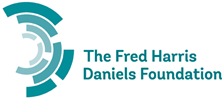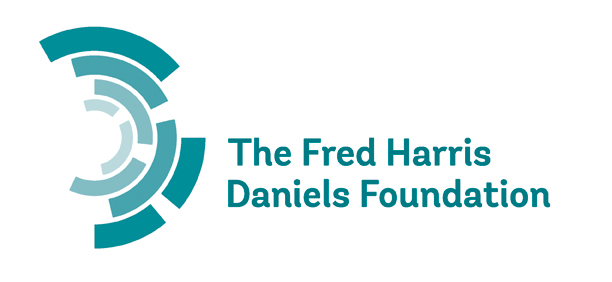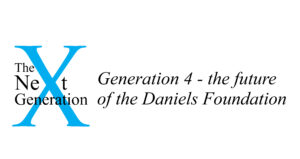26 Sep September 2020 Newsletter
September 2020 Newsletter
Welcome to the September 2020 edition of the Daniels Foundation Newsletter. In this issue, we explore the following topics. Click on the links to read the articles!
Worcester’s Response to Hunger during the COVID Pandemic: Like communities worldwide, the COVID pandemic has affected Worcester in so many ways, with food insecurity being perhaps the top of the list. Figures released from a Massachusetts Government Report project that food insecurity for children has increased 81% from 1 in 10 to 1 in 5, the second highest change in the country, and for adults, that increase has been from 1 in 11 to 1 in 7. Click here to read more…
Worcester Medical Community Advances COVID-19 research: According to the Worcester Business Journal, Worcester County’s rate of confirmed coronavirus cases in April was among the top 10% of all counties nationally, and its death rate was in the top 11%. As local non-profits have worked tirelessly to ensure the basic needs of the people of Worcester, the medical community in Worcester has been doing everything they can to save lives. In the middle of that effort is UMass Medical School (UMMS). Click here to read more…
Community Harvest Project Produces Food for those Most in Need: For 18 years Community Harvest Project has been producing 50 varieties of vegetables and blueberries. All of this healthy, nutritious fresh produce is distributed to those who need it most – those experiencing hunger. The food is distributed through 4 different agencies – the Worcester County Food Bank, Community Servings, Hector Reyes House and the Grafton Food Bank. Click here to read more…
Non-Profit Spotlight: Community Servings Community Servings, Inc is a unique group that the Daniel Foundation has funded annually since 2013. They provide medically tailored meals and nutrition education to people who suffer from several different illnesses that prevent mobility. Click here to read more…
Worcester’s Response to Hunger During the COVID Pandemic
By Sarah Morse and Wendy Andrews
Like communities worldwide, the COVID pandemic has affected Worcester in so many ways, with food insecurity being perhaps the top of the list. Figures released from a Massachusetts Government Report project that food insecurity for children has increased 81% from 1 in 10 to 1 in 5, the second highest change in the country, and for adults, that increase has been from 1 in 11 to 1 in 7. Numerous studies document the connections between poor nutrition and challenges in areas as varied as difficulties learning to less favorable outcomes surviving a COVID infection. The Daniels Foundation has focused their grant making for the past 7 months on “basic needs” in response to COVID with much of it directed towards food insecurity beginning with unsolicited emergency grants of $2,500 in March. Nonprofits directly addressing food insecurity that received multiple grants in 2020 include the Regional Environmental Council (UGROW), Community Servings, Jeremiah’s Hospice Nutrition Center, Rachel’s Table, and Community Harvest. From March through September, grants to these organizations totaled $122,000 dollars.
The city of Worcester has responded as well. The Greater Worcester Community Foundation (GWCF) partnered with United Way of Central Massachusetts (UWCM) to start the Worcester Together Fund on March 17. Within a month, this fund grew to over $5.5 million dollars through donations from local foundations and $3.8 million dollars from the Mass COVID 19 Relief Fund, a statewide effort working with Community Foundations and Food Banks to help support response levels at the local levels. A face mask challenge in April raised additional millions! By the end of July the fund had raised over $10 million dollars and distributed over $8 million. This money has supported nonprofits struggling with how to move forward during these challenging times, many of them engaged with issues around food insecurity
.
In December the Daniels Foundation will continue to focus their efforts on how to best support the most vulnerable members of the Worcester community during the ongoing pandemic.
Worcester Medical Community Advances COVID-19 Research
By Barre Hardy
According to the Worcester Business Journal, Worcester County’s rate of confirmed coronavirus cases in April was among the top 10% of all counties nationally, and its death rate was in the top 11%. Since March, COVID-19 has had a severe impact on Worcester, driving increases in food insecurity, unemployment and economic hardship. As local non-profits have worked tirelessly to ensure the basic needs of the people of Worcester, the medical community in Worcester has been doing everything they can to save lives. In the middle of that effort is UMass Medical School (UMMS).
UMMS, located in Worcester, is the commonwealth’s first and only public academic health sciences center. UMMS has three major research efforts underway that are advancing life-saving treatments for COVID patients in Worcester, improving testing capabilities nationally, and better understanding the impact of COVID on nursing homes. While the Daniels Foundation has supported UMMS in some small ways in the past, we typically do not fund organizations which are receiving large national grants like UMMS. Our efforts around COVID-19 have centered on supporting smaller organizations which are making a difference in supporting the basic needs of Worcester County’s local communities. Even as such, the work UMMS is doing will have a lasting impact locally and nationally.
Convalescent Plasma Study
Plasma was used from a COVID-19 survivor back in early April to successfully treat a critically ill patient at UMass Memorial Medical Center. While transfusing blood from those who have recovered from a disease dates back to the influenza pandemic of 1918, this was the first time the method had been used in Massachusetts as a way to treat COVID-19. As of May, more than 100 critically ill COVID-19 patients in the UMass Memorial Health Care system have been treated with convalescent plasma through a UMass Medical School clinical trial led by Jonathan M. Gerber, MD.
UMMS scientists have since used this research study to analyze donated plasma and patient outcomes to learn more about the quantity and quality of antibodies that lead to positive recovery responses. As of June, Dr. Gerber said it is too early to draw a conclusion on the effectiveness of the therapy, but it appears to be helping these very sick coronavirus patients, most of whom were on ventilators when treated.
COVID-19 Testing Grant
UMMS was recently awarded approximately $100 million to assist the National Institute of Health (NIH) in identifying promising new technology that will advance testing capabilities in the United States as part of NIH’s Rapid Acceleration of Diagnostics or RADx program. “RADx works like the TV show, ‘Shark Tank,’ to identify and support promising technologies that will get more people tested more easily for the SARS-CoV-2 virus, which causes COVID-19”
UMass Medical School was selected as a partner due to the years of experience they have in advancing the point-of-care medical technology – identifying, evaluating, and investing in small business to help them get through clinical trials. They are now applying this same skill set to the COVID-19 testing challenge in partnership with NIH. The goal is to expand diagnostic testing capacity for COVID-19 in the United States from 1 million to about 6 million tests per day by December.
More than 600 companies have completed applications resulting in grants to about 30 companies in different phases of development. UMMS has administered 14 of these grants. “We need to get to a place where you get up in the morning, you’re going about your day, you brush your teeth, you’re getting your saliva sample or nasal swab, and then you run your test in your home every day to determine if you have COVID,” Dr. McManus of UMMS said. The technologies being identified are getting us closer to this vision.
Nursing Home Clinical Trial Grant
In early August UMMS was awarded $717k from the National Institute on Aging to develop a roadmap for clinical trials to study COVID-19 in nursing homes. Nursing home residents make up more than 40% of COVID-19 deaths nationwide. According to the Massachusetts Department of Public Health, this figure is more than 50% for Massachusetts and some report as high as 60%. There is an urgent need for scientific approaches that look at and understand how to control rate the infection, prevent and treat COVID-19 in and among long-term care facilities. This grant directly addresses building a plan to try and answer these questions.
The UMMS research team, together with collaborators across the country, will complete an inventory of existing research on nursing homes and prioritize research questions they seek to answer through a comprehensive study related to COVID-19 in nursing homes. This work will inform a roadmap for how to effectively and safely run a COVID-19 clinical trial within the national nursing home network. The output will hopefully enable researchers to understand how to slow the spread of infection within this population, and most effectively manage and treat those who have been infected.
Conclusion
UMass Medical School is advancing critical COVID-19 research that will improve our understanding of the most effective ways to treat patients, to advance our country’s rapid testing capabilities, and to keep our most vulnerable population safe.
Sources
Worcester’s Coronavirus case rate in top 10% nationally
UMass Medical School researchers ramp up COVID-19 convalescent plasma study
National Institute on Aging grant aims to create roadmap for COVID-19 trials in nursing homes
Roughly 600 have died of coronavirus in Worcester County care facilities
Rate of coronavirus deaths at Mass. long-term care facilities among highest in the nation
Community Harvest Project Produces Food for those Most in Need
By Chris Eaton
For 18 years Community Harvest Project has been producing 50 varieties of vegetables and blueberries. All of this healthy, nutritious fresh produce is distributed to those who need it most – those experiencing hunger. The food is distributed through 4 different agencies – the Worcester County Food Bank, Community Servings, Hector Reyes House and the Grafton Food Bank.
In 2014, 30 acres of an apple and peach orchard was gifted to the Community Harvest Project, so now they are able to produce 100,000 pounds of apples annually.
Before COVID 19, 7,500 volunteers of all ages could experience the joy of working together to help those less fortunate as they formed friendships and experienced farming first hand. COVID 19 hit right in the start of planting season in March, so only 6 volunteers were allowed to do all of the planting. They were masked, gloved and washed hands frequently while adhering to social distancing. In April, 10 volunteers were allowed to transplant the seedling into the fields, while still adhering to COVID 19 protocols. Now 35 volunteers are just barely managing to handle the rigorous demands of harvest. Fresh produce spoils easily, so that it is crucial that it is harvested in a timely manner. Community Harvest has had to become very creative in order to accomplish this feat with so many fewer volunteers. The funds from the Daniels Foundation have helped immensely for handling this feat.
During this incredibly stressful time when many people are out of work, have no resources to fall back on, and may have serious medical issues as well as being homeless, it is critical that those experiencing hunger have access to some of these 50 varieties of vegetables and 100,000 pounds of apples. The Community Harvest Project is grateful that the Daniels Foundation can help to make this happen.
Non-Profit Spotlight: Community Servings
By Laura Rutkiewicz
Community Servings, Inc is a unique group that the Daniel Foundation has funded annually since 2013. They provide medically tailored meals and nutrition education to people who suffer from several different illnesses that prevent mobility. The Foundation has granted just about $30,000 to Community Servings this year, which was not a typical cycle since applicants were permitted to apply more than just annually. The board decided nonprofit groups who provided basic needs to the population of Worcester County could apply to our Covid19 specific application process. In March 2020 they received $12,000 from the normal cycle when they would make the annual request, and then on March 29th they received a $2,500 Emergency COVID grant. In June we sent $7,500 and September another $7,500. Please read the personal story below to see why this group is so vital for Worcester.
Ms. Tobin Scipione is the Director of Foundation and Corporate Relations for Community Servings. She writes: I have included a profile below of one of our Worcester clients (his name is already changed to protect privacy). For clients, like Isaiah, our “no-contact” home-delivery of meals during the current pandemic is even more important as he, like all of our severely ill primary clients, are highly vulnerable to severe COVID-19 impacts if they get the virus.
Isaiah is a 45-year-old client from Worcester who came to Community Servings after being diagnosed with a colorectal carcinoma, which had metastasized to his liver and lung. He was also undergoing chemotherapy. Because of his treatment, Isaiah did not have much energy or much of an appetite. He shared with our Client Services team that the meals he receives from Community Servings are “appetizing,” “incredible,” and have “made a huge difference” in how he feels. He particularly enjoys the fish entrees and bean salads, and credits Community Servings for getting him to eat more vegetables than ever before. He said that he feels stronger and healthier since he started receiving weekly deliveries. For Isaiah, who did not have the energy to shop or cook for himself, microwaving a healthy, nutritious meal that was delivered to his doorstep made a difficult time in his life much less stressful.
We are happy to share that after receiving our meals for six months, Isaiah has gained weight and his BMI is in what is considered to be the normal range.
Ms. Scipione also wrote: “Thanks so much for your tremendous support of Community Servings and our home-delivered medically tailored meal program in Worcester! I had a lovely conversation with Sarah D. over the summer and speak for the whole team when we say how much we appreciate that the Foundation quickly deployed COVID-19 funds to help us rapidly respond to the crisis. And thank you for profiling us in your next family newsletter!





Sorry, the comment form is closed at this time.